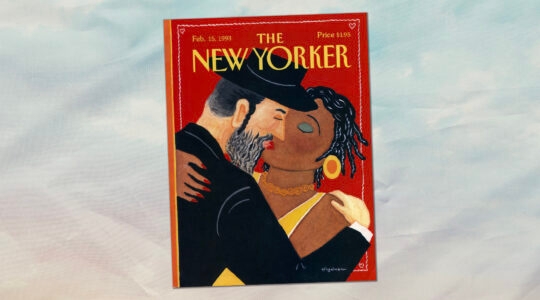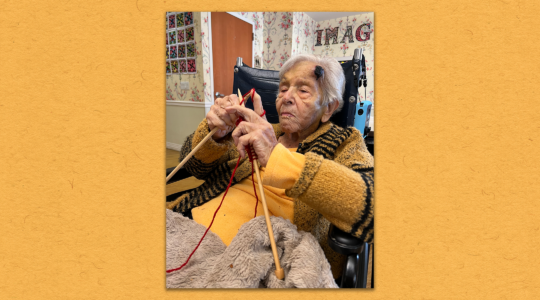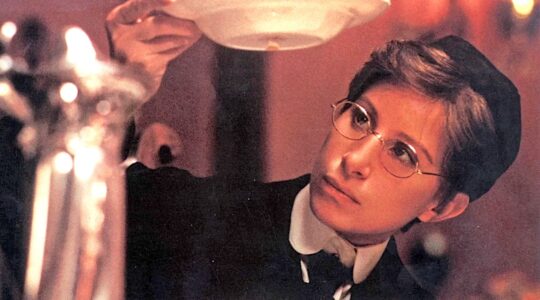The national reckoning over sexual harassment against women in the workplace has swept with tidal-wave force through the worlds of politics, Hollywood and the media. This week it burst onto the pulpit with female rabbis describing being sexually harassed by senior rabbis, administrators and even congregants.
“I speak with rabbis across the country and every single female rabbi I know has a story — if not several — of being sexually harassed,” said Rabbi Rebecca Sirbu, director of Rabbis Without Borders at the New York-based CLAL – The National Jewish Center for Learning and Leadership.
Rabbi Sirbu related anecdotes that suggest a treacherous landscape faced by women clergy, one that, until now, has not been part of the fast-moving revelations that have brought down Hollywood producer Harvey Weinstein, actor Kevin Spacey, PBS host Charlie Rose and a slew of other powerful men.
“People don’t understand how many congregants cross the line,” Rabbi Sirbu said. “I had one say to me as I was carrying the Torah [down the aisle], ‘You’re so pretty, I don’t know whom to kiss first — you or the Torah.’ And a friend who lost weight had a congregant come up to her, put his arm around her neck and squeeze her breast while saying, ‘It’s great to have a hot rabbi on the bima.’”
Another female rabbi who learned she was known to her congregants as the “rabbi with the nice legs” has now taken to wearing pants at all times.
⬥
Sexual harassment of female rabbis has become so prevalent that the Reform and Conservative movements are moving quickly to address the problem in the following ways:
* The Conservative movement’s Ziegler School of Rabbinic Studies in California will introduce a course next month to train women rabbinical students how to handle sexual harassment.
* In the past two months, Jewish communal workers have created a closed Facebook page, GamAni (MeToo), to give support and a voice to sexual harassment in the Jewish world.
* The grant-making group Good People Fund is planning a one-hour webinar with Fran Sepler, an authority on sexual harassment prevention. She just led a full day of training for 12 Jewish communal organizations in New York and New Jersey, and plans to follow up with those groups’ staff members in February or March to help them develop specific policies for their institutions.
* The Central Conference of American [Reform] Rabbis has just formed a Task Force on the Experience of Women in the Rabbinate, which will deal with sexual harassment and other issues.
For one woman rabbi, sexual harassment by her supervisor became so troubling that she went to a lawyer and asked him to file a sexual harassment suit against her boss. She told The Jewish Week that among her complaints was his response when she asked him to confirm that the Hebrew word for sour was “chamutz.”
“Yes, sour like your p—-,” he said, using the same word President Donald Trump used when talking about grabbing women in the infamous Access Hollywood video.
At another time, when her boss was preparing to interview a woman rabbi for a job, she said he confided to her that he would never hire the woman “because she is a lesbian.”
“And then he wanted me to give him a how-to guide on how lesbians have sex,” she recalled, asking that her name be withheld for this article.
Female rabbis are prohibited from filing sexual harassment suits against their employers because of what is known as the “ministerial exemption.”
Her bid to sue her boss went nowhere because her lawyer, Andrew Dansicker, told her that unlike other women, female rabbis are prohibited from filing sexual harassment suits against their employers because of what is known as the “ministerial exemption.”
“If you are a person who fits within the ministerial exemption — a rabbi, cantor, teacher or administrator — you are not able to pursue wrongful claims for discrimination, wrongful termination or sexual harassment,” he told The Jewish Week. (See here.)
Rabbi David Glickman, spiritual leader of a Conservative congregation in Overland Park, Kan., said that for years he has “heard about the inappropriate comments female rabbis would get that male colleagues would simply never get. I was not aware until a few months ago that these rabbis have no [legal] recourse, which is hugely problematic.”
He said he believes synagogues have an ethical obligation to explain that restriction to all new employees and “should think of what protections we can provide all our employees.”
Hundreds Of Stories
The Reform movement, which first ordained a female rabbi in 1972 and now has nearly 700 women who are members of the CCAR, has “heard literally hundreds of stories from women rabbis, everything from micro-aggression to sexual harassment,” said Rabbi Hara Person, the CCAR’s chief strategy officer.
“Micro-aggression is sexualizing a situation that has nothing to do with sex,” she said, noting that it includes such things as female rabbis being told to “cross your legs” while sitting on the bima, to “innocuous” comments like, “I always wanted to kiss a rabbi.”
“It could also be inappropriate touching and jokes and comments about her body or clothing, how she looks and is dressed,” Rabbi Person said.
She said the CCAR has received complaints from female rabbis about sexual harassment at their jobs but that she did not know the exact number. “If every woman who has ever experienced micro and sexual harassment tried to switch jobs, there would be no jobs. This is something women live with every day.”
“It is so pervasive I can’t give you a number,” Rabbi Person said. “And it is not just since the ‘Me Too’ conversation came onto the national stage; it’s been since Trump became president. His behavior is part of this conversation about the treatment of women. It began during the election campaign. It started a conversation in the rabbinate.”
Rabbi Person’s comments were echoed by Rabbi Mary Zamore, director of the Women’s Rabbinic Network, a nonprofit support group for CCAR members.
“For the 45 years that women have been rabbis, they have faced sexual harassment,” she said. “It is especially true now with the #MeToo movement. Many women rabbis have been reaching out to me directly to share their personal narrative and pain. …. Yes, it is that pervasive.
Women rabbis have faced some level of gender harassment in the way they are treated, talked to and perhaps even touched. “It is a reflection of people looking at us as women and not as the professionals we are.
“If every woman who has ever experienced micro and sexual harassment tried to switch jobs, there would be no jobs. This is something women live with every day.”
“Some women have experienced truly life-changing sexual harassment and assault, and for others it has been constant static behind their career,” Rabbi Person added. “Sexual harassment can happen in many different forms. … I think the fact that our nation has elected someone who is a known sexual harasser has brought forth a sense that it is enough already. Men and women are rising up and saying this is not the society we want. This is really an organic grassroots uprising.”
The Ziegler School decided to offer female rabbinical students a course on how to deal with sexual harassment after Rabbi Cheryl Peretz, the school’s associate dean, did a survey and discovered that 75 percent of the female students said they would like one.
“We are not requiring the course but I believe a lot of women will be interested,” Rabbi Peretz said.
She said she has found that most women will “avoid conflict” rather than confront a problem. “To be able to say to someone that what they did or said is inappropriate when that person is a congregant or your boss — some women would be worried it would affect their jobs,” Rabbi Peretz said. “We are looking to train women through role-playing of real life situations. None of the [other rabbinical] schools have been doing enough of this kind of training. Nobody knows yet how to solve this in the world.”
“We have a lot of education to do.”
She added that Jewish “federations and other organizations are still not thinking how they are in a professional environment. We all want to be family and think that we are working in the informal behavior of the family. And when someone is offended, the response is, ‘I was just joking,’ ‘I didn’t mean any harm by it’ and ‘I never thought you would have taken it that way.’ I believe that most people are not doing it maliciously. Some of my female colleagues may disagree, but I don’t think it is — and that means we have a lot of education to do.”
Rabbi Julie Schonfeld, executive vice president of the Conservative movement’s Rabbinical Assembly, said she believes the Jewish community “needs to come together around this issue and have a community-wide undertaking to really educate about, teach about and recognize the destructive cultural norms that have found their way into Jewish cultural life and our own interaction.”
“Judaism has a lot to say about the principles of human dignity and worth and appropriate boundaries between people and how to speak to others,” she added. “Even at the most baseline level, women rabbis hear comments about their physical person and appearance. It’s ubiquitous — her dress is too long or too sort or too revealing, her heels are too high or too low, her voice is too loud. … This all speaks to something that is very important for us to deal with as a community.”
The New York Jewish Week brings you the stories behind the headlines, keeping you connected to Jewish life in New York. Help sustain the reporting you trust by donating today.




